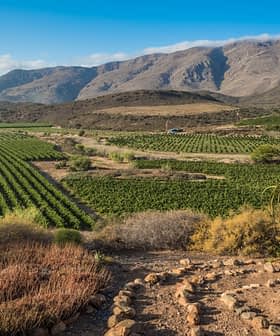The European Commission has announced a plan to grow the share of agricultural land under organic farming in the European Union to 25 percent by 2030 as part of the bloc’s Farm to Fork Strategy.
Currently, about 8.5 percent – 13.8 million hectares – of all agricultural land in the E.U. is farmed organically. According to data from Eurostat, 9.8 percent of the bloc’s 4.6 million hectares of olive groves are organically cultivated.
Increased organic production is central to the transition to more sustainable agriculture and aquaculture sectors that provide fair incomes for farmers and contribute to vibrant European rural and coastal areas.
The European Commission estimates that organic agricultural products in the 27-member bloc are currently valued at about €41 billion.
“By producing high-quality food with low environmental impact, organic farming will play an essential role in developing a sustainable food system for the E.U.,” the European Commission said.
See Also:Italian Olive Sector Must Focus on Quality for Future Success, Report FindsBefore the Commission made its announcement, the share of agricultural land under organic farming practices was already on pace to reach between 15 and 18 percent by 2030.
“The 25 percent target significantly increases our ambition,” the Commission said in its report. “This action plan aims to encourage a marked increase of the share of organic farming in the E.U., through encouraging farmers to convert to organic farming and to expand the accessibility of organic food to close the gap between a business-as-usual growth curve and the ‘extra effort’ necessary to reach a 25 percent target by 2030.”
The Commission plans to reach its new target by stimulating organic food consumption in the bloc. It has proposed to do this by promoting the organic farming logo applied to food products in the E.U., improving traceability and cracking down on food fraud to increase consumer trust.
The Commission also plans to increase the rate at which farmers are converting to organic practices by providing financial support and incentives to do so through the Common Agricultural Policy, promoting organic producer associations and strengthening local and small-volume production chains.
The ultimate goal of the plan is to add value to European agriculture and increase the sustainability of the sector, which is one of the largest emitters of greenhouse gases on the continent.
“The E.U. has a leading role to play in the promotion of changes in farming practices,” the report concluded. “Increased organic production is central to the transition to more sustainable agriculture and aquaculture sectors that provide fair incomes for farmers and contribute to vibrant European rural and coastal areas.”









